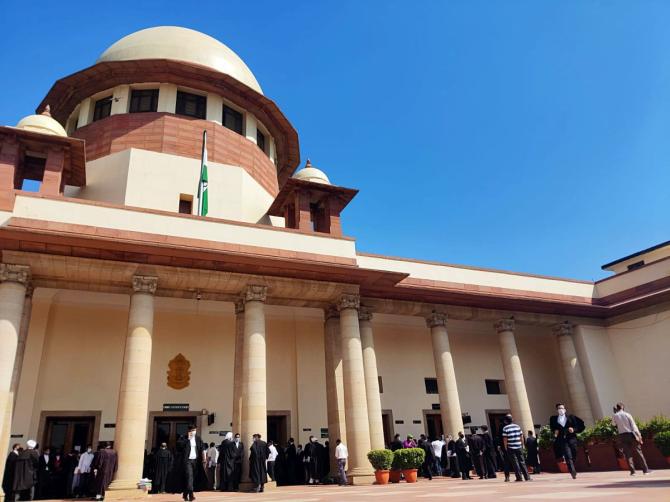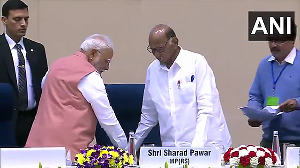The Supreme Court has set aside a Delhi high court order that quashed a summons issued to the editor and deputy editor of online news portal The Wire in a criminal defamation case over a publication on a dossier allegedly depicting the Jawaharlal Nehru University in New Delhi as a "den of organised sex racket".

The complaint was filed by Amita Singh, former professor and chairperson of the Centre for Study of Law and Governance at the JNU, against several people, including the editor and deputy editor of "The Wire", for allegedly imputing in the April 2016 publication that she had prepared the dossier in question.
A bench of Justices MM Sundresh and Aravind Kumar said the high court, in its March 29, 2023 order, exceeded its jurisdiction.
It said the high court, while finding fault with the reasoning adopted by the magistrate for issuing the summons, went ahead and decided the matter on merit and held that no case for defamation was made out.
"Though arguments have been made at length, we are of the view that the high court has certainly exceeded its jurisdiction. Section 204 of the CrPC, as it then was, merely facilitates a magistrate, who, upon entertaining a private complaint, has to proceed further by issuing a summons for which purpose he has to satisfy the existence of sufficient grounds. In such a view of the matter, we have no hesitation in setting aside the impugned order," the bench said in its order.
The bench was also critical of the trial court's order of issuing summons and said the magistrate had not looked into the actual publication made by The Wire.
"Law does not prohibit him to look into the same and, on the contrary, he ought to have looked into it before issuing the summons. We may also note that, in any case, the application filed invoking section 311, CrPC (power to summon material witness) was also allowed, though subsequently," the bench said in its July 24 order.
"In such a view of the matter, without expressing anything on merits, we set aside the impugned order by remitting the issue of summons to the magistrate after duly taking note of the publication said to have been made by the respondents," it added.
While disposing of the appeal, the bench said the magistrate shall proceed with the matter afresh, without being influenced by any observation made by the high court in the impugned judgment.
In an affidavit filed before the top court on October 6 last year, the JNU said on the basis of the records maintained by its academic section, no dossier of the description matching the contents of the petition was received or was available.
On March 29 last year, the high court, while setting aside the summons issued against the editors of the news portal, said it was unable to discern how the article could be said to have defamed the complainant, when it "nowhere says that the respondent (Singh) is involved in the wrongful activities nor does it make any other derogatory reference to her in connection therewith".
The court had said the subject publication itself was not before the magisterial court in accordance with section 65B of the Evidence Act.
"On a plain reading of the extract of the subject publication, which is all that was contained in the complaint, there appears to be nothing 'defamatory' in it, as understood in law, since all it says is that the dossier calls out certain wrongdoing in the university. Since, on the point of law, there can be no oral evidence in substitution of a certificate under section 65B of the Evidence Act, there was no material before the learned magistrate based on which the summoning order could have been passed," the court had said in its order.
It had further said the complainant's grievance was that the comments made by certain other accused persons against her were defamatory but the lower court did not summon them.
"Summoning order dated January 7, 2017 made by the metropolitan magistrate in criminal complaint bearing CC No. ... cannot be sustained in law, and is accordingly quashed and set aside," the high court had said.
Singh had argued before the lower court that the accused persons had launched a hate campaign against her to malign her reputation.
The editor and deputy editor of "The Wire" had challenged the summoning order before the high court on the ground that there was no material on record on the basis of which the magistrate could have summoned them.
Aggrieved by the high court order, Singh approached the top court last year.











 © 2025
© 2025